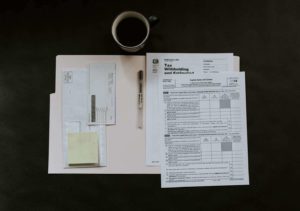Due to recent reforms enacted by the United States, new and existing taxpayers in the United States have burning tax filing questions relating to their taxes. On the other hand, experts have been timely in responding to such queries, as you’ll find out in this article.
Regarding tax filing, the top ten questions people ask about personal tax and tax savings are highlighted and addressed in this article. These questions include:
- When are taxes due?
- When can I file my personal tax?
- Who can be claimed as a dependent?
- What is Earned Income Tax Credit under tax savings?
- Are unemployment benefits taxable?
- When am I eligible to be a personal taxpayer?
- How long should I keep my personal tax records and tax saving documents?
- Is Social Security taxed while filing personal taxes?
- What tax reforms will affect my personal taxes or savings?
- What are qualified education expenses eligible under the personal tax savings and filing?
Top Tax Filing Questions
When are taxes due?
In the US, taxes are due for filing on the 15th of April every year. However, 2017 had a different date as a result of 15th and 16th April falling on a Sunday and a public holiday, respectively. Thus, in 2017, the deadline to file personal taxes was on the 17th of April. In 2018 and 2019, deadline will go back to be 15th of April. Get access to simple and easy tax filing using an online service.
When can I file my personal tax?
The standard recommendation is that you shouldn’t wait for the deadline date, which is the 15th of April, to file your taxes. Through the Internal Revenue Service (IRS) website, you can submit your taxes online before the due date with complete details of your income, expenses, saving, credits, and others.
Who can be claimed as a dependent?
Under the IRS specifications, either a “qualifying child” or “qualifying relative” are highlighted as being eligible to be declared as a dependent. As the taxpayer, some factors that qualify such a person include the duration the dependent has gotten support from you (at least half a year).
What is Earned Income Tax Credit under tax savings?
Personal tax filing by low to middle-income taxpayers in the United States and the credit/ refund gained from the tax filed under this head refers to the term Earned Income Tax Credit (EITC). In a nutshell, it relates to tax benefit or tax saving element for the low or middle-income US families.
Are unemployment benefits taxable?
In the United States, your unemployment benefits are taxed and reported under a 1099-G form subject to quarterly estimated taxed payments. Also, as per the W2 reporting of the taxpayers’ income, unemployment benefits are not considered as unemployment compensation.
When am I eligible to be a personal taxpayer?
Depending on the various criteria on the person’s filing status, age, and the type of income received, a person in the US is eligible to pay taxes and accesses the online IRS portal to file their taxes.
Various IRS parameters for being an eligible taxpayer depends on the person’s age, type of income, and filing status. Generally, if you’re below 65 years and marital status as single, with an income below $10,350 per year, you’ll file a federal tax. For freelancers or those termed “non-employee compensation,” you have to pay taxes on earnings above
$600.
How long should I keep my personal tax records and tax saving documents?
According to the IRS, taxpayers in the US are to maintain personal tax records and tax saving documents and records for at least three (3) years when the auditors can verify your proofs in case of any discrepancies.
Is Social Security taxed while filing personal taxes?
Depending on your income, it’s possible that up to 85% of your social security would be taxed while filing personal taxes, which could depend on your age and tax bracket. For example, you’ll likely get your social security taxed while withdrawing your retirement money before it matures.
What tax reforms will affect my personal taxes or savings?
Due to the recent tax reforms announced, several questions regarding the implications on tax filing, savings, credits, and other arose. However, most of the tax reforms enacted in 2017 would take effect in 2018 upwards. Under the health care reforms, individuals with income above the federal poverty level are still required to have health care coverage, or they may be subject to a penalty.
What are qualified education expenses eligible under the personal tax filing and savings?
Qualified education expenses are incentives around education and credits and expenses provided by the US Government. They include costs incurred under the higher education pursuits of full-time or part-time degree courses. However, the money you expend on room and board, insurance, medical expenses, transportation, non-credit courses, and other personal expenditures are not included as qualified education expenses of a taxpayer.



